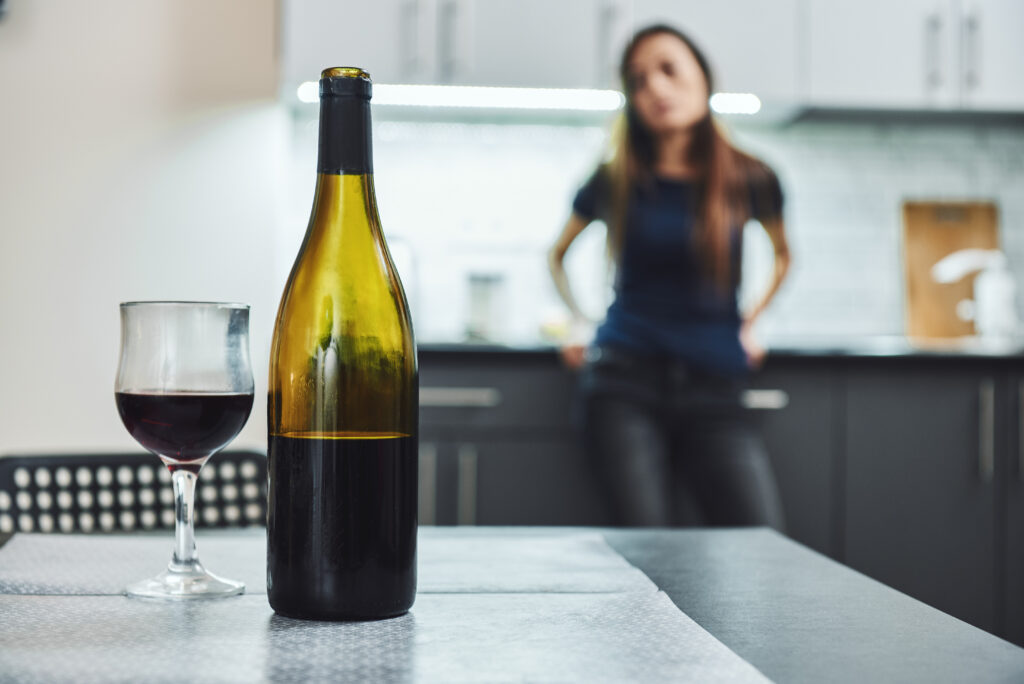If you’re looking for opioid addiction treatment for yourself or someone else you love in Ohio, you will probably have heard of several options for treating opioid dependence. Among them are Medication Assisted treatment (MAT) and Suboxone.
The point is—if you or someone you love is addicted to opioids in Ohio, you are NOT alone. Ohio is home to some of the best addiction treatment centers in the country. We also have some excellent recovery communities here. In fact, the 12-step recovery movement as we know it was born in Akron, Ohio!
This Redemption Recovery article explains several options for opioid addiction treatment in Ohio, including the partial hospitalization program, IOP, and MAT, among others.
What Are The Opioid Addiction Treatment Options in Ohio?
If you or someone you care about is grappling with an opioid use disorder (OUD) it’s easy to feel helpless, out of control, and out of options. The fact is that you’ve got a solid range of options for treatment for opioid addiction in Ohio, ranging from partial hospitalization programs (PHP) and intensive outpatient programs (IOP) to medication-assisted treatment (MAT) and addiction treatment centers in Ohio.
If that sounds like a lot to think about—-don’t worry. We’ve broken down your opioid treatment options in plain language below:
Opioid Addiction Treatment Options in Ohio
First, a note. When we say opioid addiction treatment options, you should NOT get the idea that you have to choose just one of these and settle for it. Most people use more than one of the choices on this list.
Remember: You cannot get “too much help” for heroin addiction or “recover too completely” from painkiller dependence. There’s no such thing as too much help, only not enough. So, take advantage of all the help you can get!
The people we’ve seen with the most successful recovery from addiction to fentanyl, heroin, painkillers, or other opioids are the ones who did most, if not ALL, of the below. So bear that in mind.
Medical Detox for Opioid Dependence
People with active opioid addiction often start with a medical detox. When people call Redemption Recovery for help with opioid dependence, we often start them out at our local partner medical detox in Ohio.
A medical detox treats the physical symptoms of addiction to drugs like fentanyl, Percocet, Lortab, or heroin. During inpatient treatment at an addiction treatment center, patients stay overnight at a medical facility. A medical opioid detox generally takes about a week.
The length of treatment at an Ohio opioid detox varies depending on how much of a drug the person was taking, for how long, and what opioid they were taking. But generally it takes about a week, sometimes less, to be through the toughest part.
For example, a detox from some synthetic opioids, like methadone, can take a little longer than a detox off heroin (a natural opioid) or most painkillers, which are semi-synthetic opioids.
Factors that can affect the length of a medical detox from opioids include:
- Which opioid(s) a person was taking and how much.
- The person’s age and any other health issues they have.
- Other drugs the patient may have been using.
- How long it has been since their last use.
Partial Hospitalization Program for Opioid Addiction
An opioid use disorder (OUD) is a two-part illness. Physical dependence and withdrawal are only one part of addiction. The truth is that most people get past that part fairly early on. Even cravings for fentanyl, heroin, or painkillers will go away after some time.
If that’s all there was to opioid addiction treatment, people could just go to detox for a week or so and be done and live happily ever after. But we all know that’s not how it goes. This is because the psychological (mental) aspects of addiction are where the most work needs to be done. That’s where the partial hospitalization program or PHP comes in.
Wait? Hospitalization? I don’t want to go to the hospital.
Despite the name, partial hospitalization for opioid addiction doesn’t involve hospitals. PHP treatment at Redemption Recovery includes five full days per week (~6 hours/day) of dual-diagnosis substance abuse treatment.
Why most patients prefer partial hospitalization programs
This option is popular with many people who are anxious about going to a drug and alcohol rehab because, in PHP treatment, you do not sleep at a medical facility overnight. Instead, you go back to sober living or supportive housing, which offers all the comforts of home and keeps you from feeling “institutionalized.” At the same time, you get most of the benefits of a residential drug treatment center because you’re getting treatment for five full days every week.
What to know about PHP treatment for opioid addiction:
- Most people enter PHP after a medical detox (if they need detox).
- PHP is full-day treatment, similar to residential inpatient, except you don’t stay there.
- People in PHP treatment sleep at a sober living home or supportive housing.
Intensive Outpatient Program or IOP
The intensive outpatient program (IOP) is just what it sounds like. Where outpatient treatment for addiction usually consists of one group per week for 60-90 minutes, intensive outpatient treatment at Redemption Recovery ranges from 3-5 half-days per week, depending on the phase of treatment. A half-day is 3 hours. Think of it as part-time drug and alcohol rehab. People usually go to IOP treatment after they’ve completed PHP treatment in Ohio. A lot of people like IOP because its flexibility allows more free time.
What to know about IOP treatment for opioid addiction:
- Intensive outpatient treatment is part-time treatment (3 hours/day, 3-5 days/wk)
- IOP allows more flexibility sometimes, it can be done in the evening, for example.
- People in IOP treatment may be in sober living or return home at night in some cases..
Medication Assisted Treatment (MAT) in Ohio
Medication Assisted Treatment or MAT for opioid addiction consists of two parts. One, is medication, which is usually buprenorphine (Suboxone, Sublocade, etc.) to control cravings and ease any lingering withdrawal symptoms. Two, mental health therapy and counseling to help change thinking and behaviors so long-term recovery can take root. MAT is not a requirement. Most people go through detox, PHP, and IOP without it. However, MAT is one available tool and can be a useful part of a larger recovery program.
What to know about MAT and Suboxone programs in Ohio:
- MAT and Suboxone aren’t required for opioid addiction treatment to work.
- MAT can be helpful for some people—but it is NOT a substitute for a full program.
- MAT alone, usually isn’t enough for most people to establish long-term recovery.
Sober Living and Life After Opioid Addiction Treatment in Ohio
Sober living homes or recovery residences are residential homes, townhouses, or apartments where people in treatment for addiction or early recovery live. Reputable sober living homes in Ohio are usually affiliated with a local addiction treatment center.
Recovery residences usually look like any other home or townhouse, with comfortable furnishings, bedrooms, etc. The main difference is that everyone staying there is in recovery, and there are rules, such as curfews, bans on visitors, and other guidelines for the safety of the residents. Sober living houses are scientifically proven to lead to better outcomes and increased odds of long-term recovery.
Help for Opioid Addiction in Ohio is Just a Phone Call Away
We hope our article about opioid addiction treatment options was helpful and informative for you. If you have any other questions about substance use disorders, addiction treatment or related topics, please don’t hesitate to call Redemption Recovery right away.
Our compassionate team of addiction specialists is ready to help — but only you can make the first call.
One phone call can change it all.
It’s time for Redemption: (419) 528-8007
Find out what addiction treatment your insurance will cover here.





